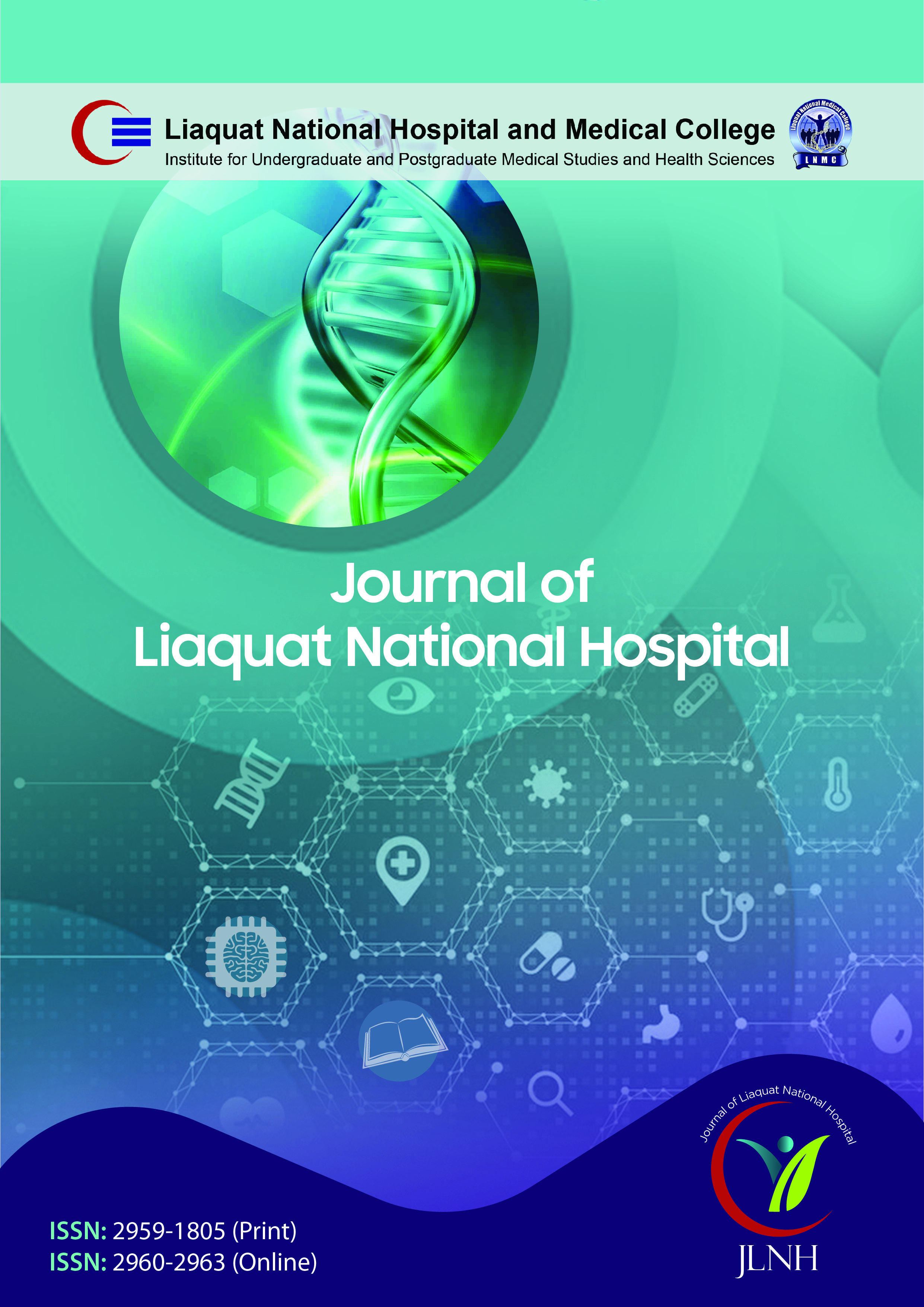Original Article
Diversity of disease-causing neonatal jaundice - experience of pediatric surgery unit in SGTH
- Authors: Muhammad Kabir, Sadder Rahim, Hafsa
Abstract
-
Background: Rapidly establishing the cause of neonatal jaundice is an urgent task. Delaying exact diagnosis can have lifelong consequences. Timely treatment, if possible, is universal solution.
Objectives: The aim of this study was to report on the prevalence of the myriad disorders causing neonatal cholestasis in an academic center in Saidu group of teaching hospital swat.
Materials & methods: Clinical chemistry and cause of disease were retrospectively analyzed in 40 infants (male n=42, 52%) that had presented with neonatal jaundice to a tertiary medical center from January 2020 to December 2021.
Results: Most common cause of persistent neonatal jaundice was biliary atresia followed by idiopathic causes and PFIC (progressive familial intrahepatic cholestasis).
Conclusion: persistent Neonatal jaundice is a severe disease. It is associated with a high risk of complications in infancy and it therefore requires urgent investigations. Although in the last2 decades new causes such as the progressive familial intrahepatic cholestasis followed by idiopathic cases have been identified and newer diagnostic tools have been introduced into the clinical routine, biliary atresia still represents the major cause
- Keywords: neonatal jaundice, biliary atresia, new born,Diversity,disease,pediatric surgery
Back to All Articles

